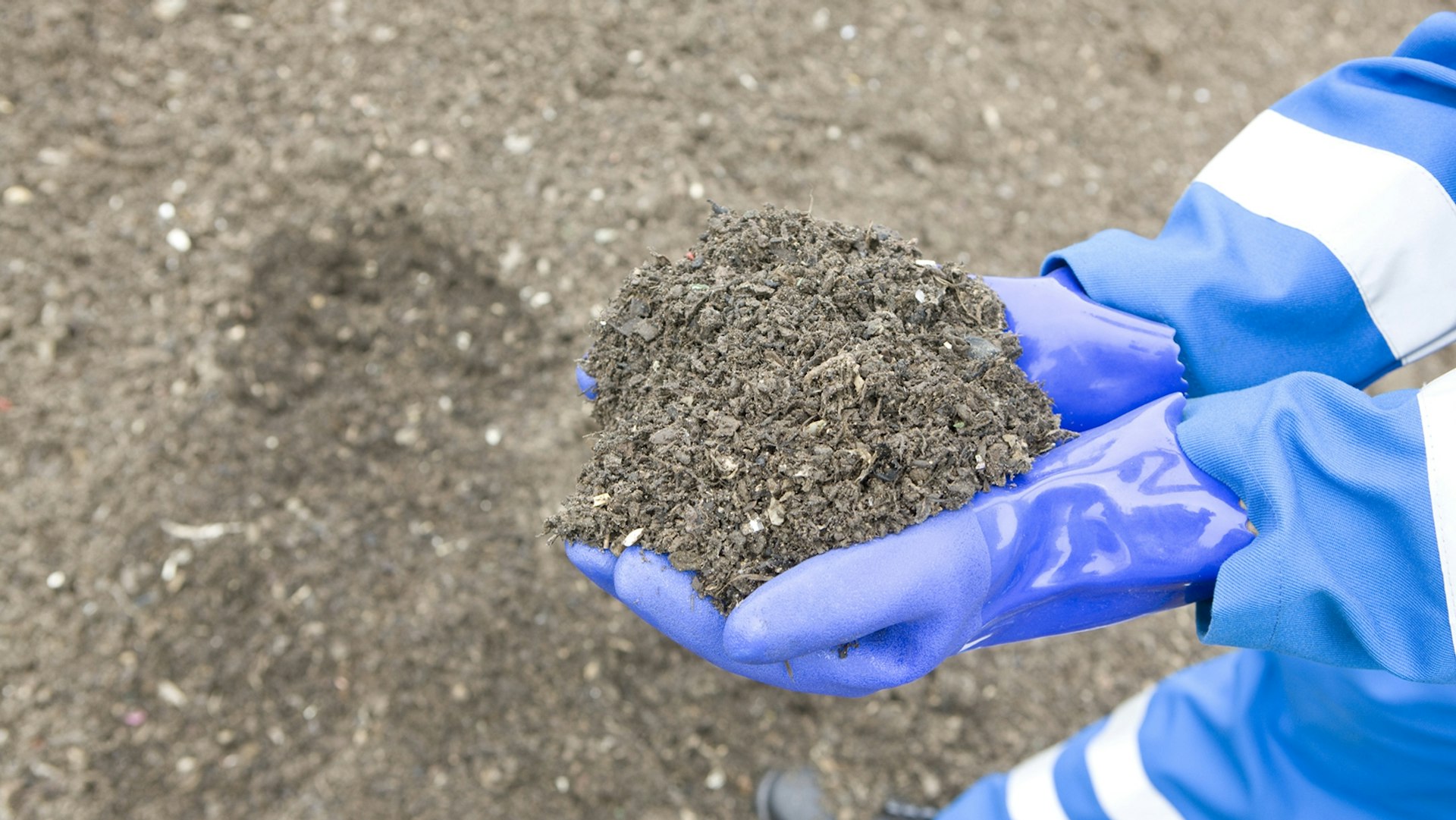Up to a third of municipal waste is made up of organic or food waste; separating and composting this not only drastically reduces the amount of waste going to landfill, it can also generates a cheap, nutrient-rich natural fertiliser which can improve farming yields and restore soil quality.
Composting organic waste materials can be done either with oxygen present (aerobically) or in the absence of oxygen (anaerobically). The latter process creates significant quantities of methane gas which can be captured and used to generate energy.
Averda works with each of our clients to develop the right solution for their organic waste, building and operating the necessary facilities and arranging containers and collections. We also help educate residents and business users to separate out their food and garden waste ready for composting.
